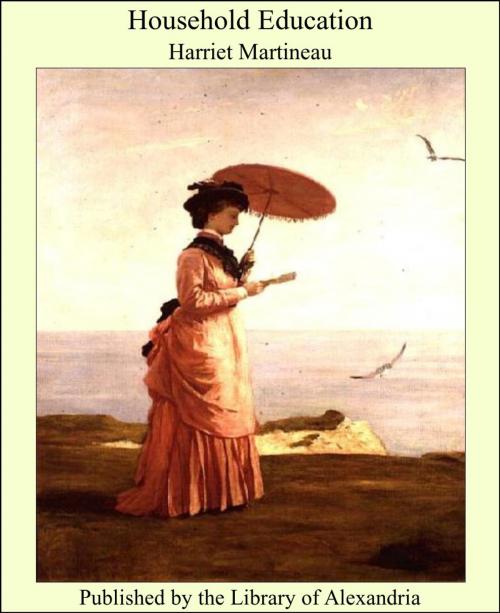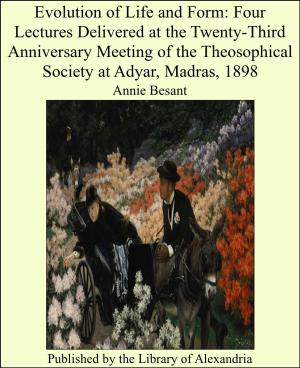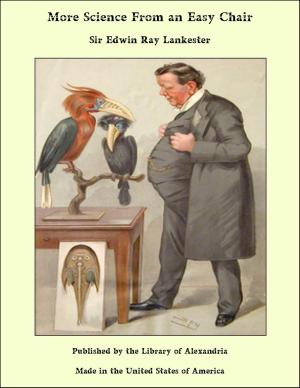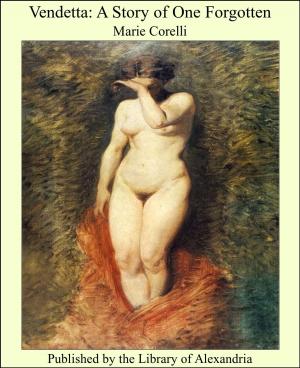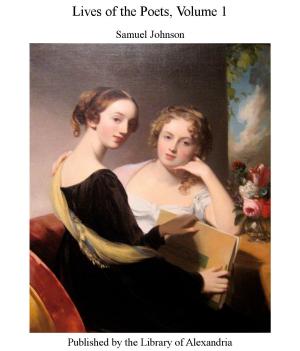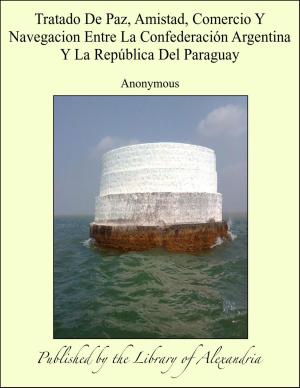| Author: | Harriet Martineau | ISBN: | 9781465514783 |
| Publisher: | Library of Alexandria | Publication: | March 8, 2015 |
| Imprint: | Language: | English |
| Author: | Harriet Martineau |
| ISBN: | 9781465514783 |
| Publisher: | Library of Alexandria |
| Publication: | March 8, 2015 |
| Imprint: | |
| Language: | English |
OLD AND YOUNG IN SCHOOL. It will be seen by these last words that I consider all the members of a household to be going through a process of education together. I am not thinking only of parents drawing their chairs together when the children have gone to bed, to talk over the young people's qualities and ways. That is all very well; but it is only a small part of the business. I am not thinking of the old, experienced grandfather or grandmOther talking at the fireside, telling the parents of the sleeping children how they ought to manage them, and what rules and methods were in force in their day. This is all very well; and every sensible person will be thankful to hear what the aged have to tell, out of their long knowledge of life: but this again is a very small part of the matter. Every member of the household—children, servants, apprentices—every inmate of the dwelling, must have a share in the family plan; or those who make it are despots, and those who are excluded are slaves. Of course, this does not mean that children who have scarcely any knowledge, little judgment, and no experience, are to have a choice about the rules of their own training. The object of training is one thing; and the rules and methods are another. With rules and methods they have nothing to do but to obey them till they become able to command themselves. But there is no rational being who is not capable of understanding, from the time he can speak, what it is to wish to be good. The stupidest servant-girl, and the most thoughtless apprentice-boy, are always impressed by seeing those about them anxious to improve; and especially the oldest of all endeavouring the more to become wiser and wiser, better and better, as their few remaining days dwindle away. If the family plan therefore be the grand comprehensive plan which is alone worthy of people who care about education at all—a plan to do the best that is possible by each Other for the improvement of all—every member of the family above the yearling infant must be a member of the domestic school of mutual instruction, and must know that he is so. It is a common saying that every child thinks his father the wisest man in the world. This is very natural; as parents are their children's fountains of knowledge. To them their children come for anything they want to know: and by them they are generally satisfied. But every wise parent has occasion to say, now and then—"I do not know, my dear." The surprise of the child on first hearing that there is anything that his parents do not know fixes the fact in his mind. When he has once discovered that his parents have something more to learn, he becomes aware—and this also ought to be fixed in his mind—that their education is not finished; and that it is their business, as it is his, to learn something more every day, as long as they live. So much for knowledge. The case ought to be as clear to him with regard to goodness. It is not enough that in church he hears that all men and women are sinners; and that in prayers at home he hears his parents pray that they may become more worthy of the goodness of God, and more like the Christ who is set before them. These things may set him thinking; but there will be, or ought to be, more light every day to clear up his ideas. The same parents who honestly own to their child that they are ignorant of things about which he questions them will own to him that they are not nearly so good as they wish to be. Thus is the truth opened to the feeblest and smallest mind that education has still to go on, even when people are so inconceivably old as children are apt to think their parents. To us, grown up to this mighty age, there can be no doubt on such a point. We know very well that we are all, through the whole range of society, like a set of ignorant and wayward children, compared with what we are made capable of being. Our best knowledge is but a glimmering—a dawn of light which we may hope will "increase more and more unto the perfect day." Our best goodness is so weak, so mixed, so inferior to what we can conceive of, that we should blush to say that during any day of our lives we had been as good as we ought to be. It is as clear to us as to children, that there is room for improvement in both ways as long as we live. To us there is another question which children cannot enter into, and have no present business with;—whether human beings remain capable of improvement as long as they live
OLD AND YOUNG IN SCHOOL. It will be seen by these last words that I consider all the members of a household to be going through a process of education together. I am not thinking only of parents drawing their chairs together when the children have gone to bed, to talk over the young people's qualities and ways. That is all very well; but it is only a small part of the business. I am not thinking of the old, experienced grandfather or grandmOther talking at the fireside, telling the parents of the sleeping children how they ought to manage them, and what rules and methods were in force in their day. This is all very well; and every sensible person will be thankful to hear what the aged have to tell, out of their long knowledge of life: but this again is a very small part of the matter. Every member of the household—children, servants, apprentices—every inmate of the dwelling, must have a share in the family plan; or those who make it are despots, and those who are excluded are slaves. Of course, this does not mean that children who have scarcely any knowledge, little judgment, and no experience, are to have a choice about the rules of their own training. The object of training is one thing; and the rules and methods are another. With rules and methods they have nothing to do but to obey them till they become able to command themselves. But there is no rational being who is not capable of understanding, from the time he can speak, what it is to wish to be good. The stupidest servant-girl, and the most thoughtless apprentice-boy, are always impressed by seeing those about them anxious to improve; and especially the oldest of all endeavouring the more to become wiser and wiser, better and better, as their few remaining days dwindle away. If the family plan therefore be the grand comprehensive plan which is alone worthy of people who care about education at all—a plan to do the best that is possible by each Other for the improvement of all—every member of the family above the yearling infant must be a member of the domestic school of mutual instruction, and must know that he is so. It is a common saying that every child thinks his father the wisest man in the world. This is very natural; as parents are their children's fountains of knowledge. To them their children come for anything they want to know: and by them they are generally satisfied. But every wise parent has occasion to say, now and then—"I do not know, my dear." The surprise of the child on first hearing that there is anything that his parents do not know fixes the fact in his mind. When he has once discovered that his parents have something more to learn, he becomes aware—and this also ought to be fixed in his mind—that their education is not finished; and that it is their business, as it is his, to learn something more every day, as long as they live. So much for knowledge. The case ought to be as clear to him with regard to goodness. It is not enough that in church he hears that all men and women are sinners; and that in prayers at home he hears his parents pray that they may become more worthy of the goodness of God, and more like the Christ who is set before them. These things may set him thinking; but there will be, or ought to be, more light every day to clear up his ideas. The same parents who honestly own to their child that they are ignorant of things about which he questions them will own to him that they are not nearly so good as they wish to be. Thus is the truth opened to the feeblest and smallest mind that education has still to go on, even when people are so inconceivably old as children are apt to think their parents. To us, grown up to this mighty age, there can be no doubt on such a point. We know very well that we are all, through the whole range of society, like a set of ignorant and wayward children, compared with what we are made capable of being. Our best knowledge is but a glimmering—a dawn of light which we may hope will "increase more and more unto the perfect day." Our best goodness is so weak, so mixed, so inferior to what we can conceive of, that we should blush to say that during any day of our lives we had been as good as we ought to be. It is as clear to us as to children, that there is room for improvement in both ways as long as we live. To us there is another question which children cannot enter into, and have no present business with;—whether human beings remain capable of improvement as long as they live
